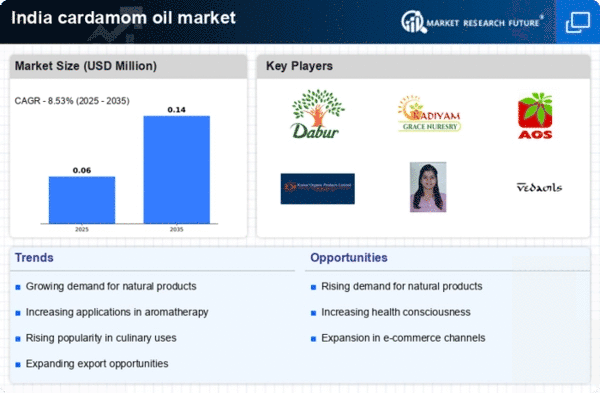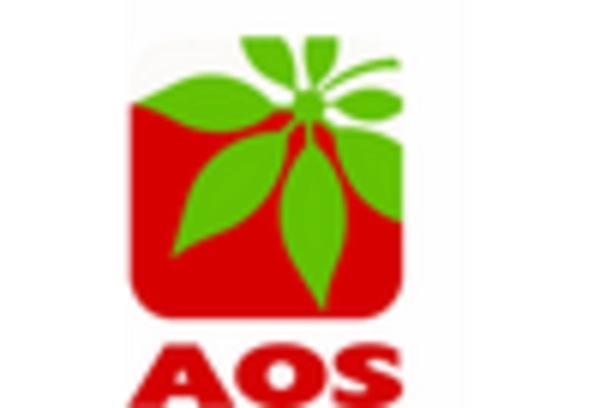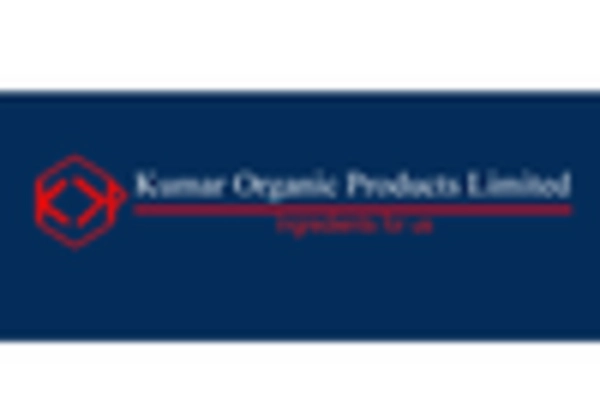Culinary Applications
The culinary sector in India is witnessing a resurgence in the use of traditional spices and oils, which is likely to bolster the cardamom oil market. Cardamom oil is not only valued for its flavor-enhancing properties but also for its aromatic qualities that elevate various dishes. The food and beverage industry, which has been expanding rapidly, is increasingly incorporating cardamom oil into recipes, particularly in desserts and beverages. This trend is supported by the growing popularity of gourmet cooking and the revival of traditional Indian cuisine. As the culinary applications of cardamom oil gain traction, the market could see a notable increase in demand, potentially leading to a market growth rate of around 6% annually in the coming years.
Rising Export Opportunities
India's position as a leading producer of cardamom presents substantial export opportunities for the cardamom oil market. The country has been exporting cardamom oil to various international markets, including Europe and the Middle East, where there is a growing demand for natural and organic products. The export value of cardamom oil has shown a steady increase, with estimates suggesting a growth of approximately 10% in recent years. This trend indicates that the cardamom oil market is likely to benefit from enhanced global trade relations and the increasing acceptance of Indian products abroad. As international markets continue to seek high-quality essential oils, the export potential for cardamom oil may further stimulate domestic production and innovation.
Growing Health Consciousness
The increasing awareness of health and wellness among consumers in India appears to be a significant driver for the cardamom oil market. As individuals seek natural remedies and alternatives to synthetic products, the demand for cardamom oil, known for its therapeutic properties, is likely to rise. Cardamom oil is recognized for its potential benefits, including digestive aid and anti-inflammatory effects, which align with the health trends observed in the country. The market for essential oils, including cardamom oil, has been projected to grow at a CAGR of approximately 8% over the next few years, indicating a robust interest in natural health solutions. This trend suggests that the cardamom oil market may experience substantial growth as consumers increasingly prioritize health-conscious choices.
Sustainable Farming Practices
The adoption of sustainable farming practices in India is emerging as a crucial driver for the cardamom oil market. Farmers are increasingly recognizing the importance of environmentally friendly cultivation methods, which not only enhance the quality of cardamom but also align with global sustainability trends. The cardamom oil market could benefit from this shift, as consumers are becoming more discerning about the sourcing of their products. Sustainable practices may lead to higher quality yields, which can command premium prices in the market. Furthermore, the emphasis on organic certification is likely to attract a segment of health-conscious consumers willing to pay more for sustainably sourced cardamom oil, potentially increasing market revenues.
Technological Advancements in Production
Technological advancements in the extraction and production processes of cardamom oil are likely to play a pivotal role in shaping the market. Innovations in distillation techniques and quality control measures can enhance the efficiency and yield of cardamom oil extraction. This could lead to a reduction in production costs and an increase in the availability of high-quality oil in the market. The cardamom oil market may experience a transformation as producers adopt these technologies, potentially resulting in a more competitive landscape. As production becomes more efficient, the market could see a rise in supply, which may help meet the growing demand from both domestic and international consumers.

















